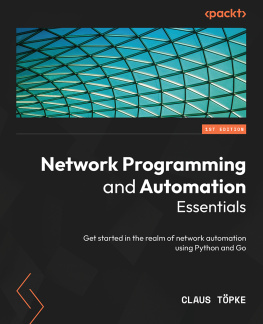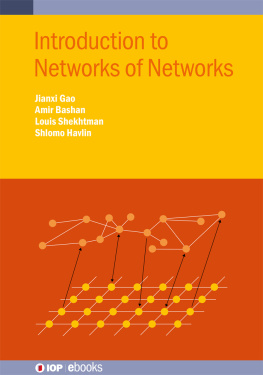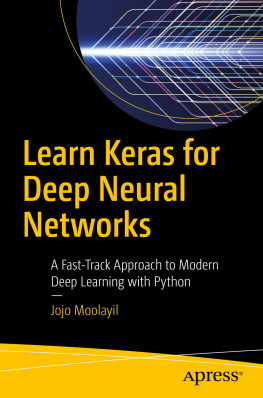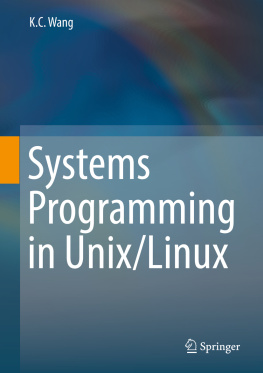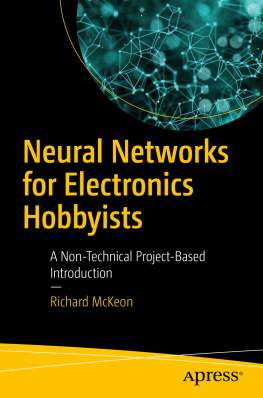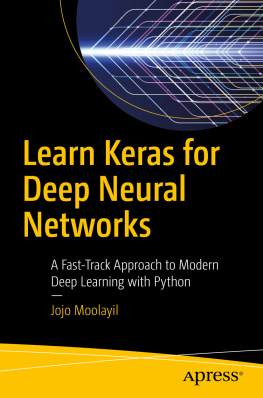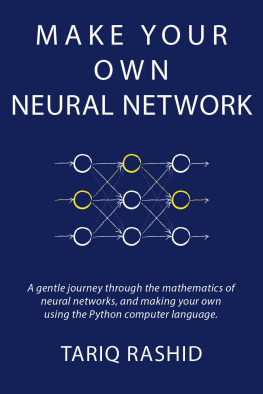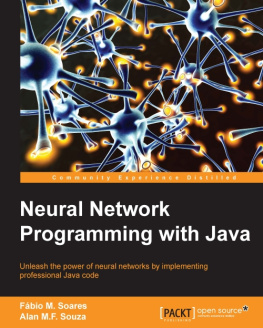A First Course in Network Science
Networks are present in all aspects of our lives: networks of friends, communication and transportation networks, and the Web are all examples that we experience outwardly, while the neurons in our brain and the proteins within our body form networks that determine our intelligence and survival. This modern and accessible textbook introduces the basics of network science required across a wide range of job sectors from management to marketing, from biology to engineering, and from neuroscience to the social sciences. Students will develop important, practical skills and the ability to write code for using networks in their areas of interest even as they are just learning to program with Python. Extensive sets of tutorials and homework problems provide plenty of hands-on practice and longer programming tutorials online further enhance students programming skills. This intuitive and direct approach makes the book ideal for a first course, aimed at a wide audience without a strong background in mathematics or computing but with a desire to learn the fundamentals and applications of network science.
Filippo Menczer is Professor of Informatics and Computing at Indiana University, Bloomington. He is an ACM Distinguished Scientist and board member of the Indiana University Network Science Institute (IUNI). He serves in editorial roles for the leading journals Network Science, EPJ Data Science, and PeerJComputer Science. His research focuses on network science, computational social science, and Web science, with a focus on countering social media manipulation. His work on the spread of misinformation has received worldwide news coverage.
Santo Fortunato is Director of the Network Science Institute (IUNI) and Professor of Informatics at Indiana University, Bloomington. His current research is focused on network science, specifically network community detection, computational social science, and the science of science. He received the German Physical Societys Young Scientist Award for Sociophysics and Econophysics in 2011 for his important contributions to the physics of social systems. He is Founding Chair of the International Conference on Computational Social Science (IC2S2).
Clayton A. Davis holds a Ph.D. in Informatics and BS and MA degrees in Mathematics from Indiana University, Bloomington. His research is concerned with the development of big-data platforms for social media analytics, machine learning algorithms for combating online abuse, design of crowdsourcing platforms, and the role of social media in social movements. His work on social bot detection was featured in major news outlets worldwide. His Web tools, including Botometer, Kinsey Reporter, and the Observatory on Social Media, answer millions of queries from thousands of users weekly. He won the 2017 Informatics Associate Instructor Award for his role in the development of high-quality teaching material for network science courses.
A First Course in Network Science
FILIPPO MENCZER
Indiana University, Bloomington
SANTO FORTUNATO
Indiana University, Bloomington
CLAYTON A. DAVIS
Indiana University, Bloomington

University Printing House, Cambridge CB2 8BS, United Kingdom
One Liberty Plaza, 20th Floor, New York, NY 10006, USA
477 Williamstown Road, Port Melbourne, VIC 3207, Australia
314321, 3rd Floor, Plot 3, Splendor Forum, Jasola District Centre, New Delhi 110025, India
79 Anson Road, #0604/06, Singapore 079906
Cambridge University Press is part of the University of Cambridge.
It furthers the Universitys mission by disseminating knowledge in the pursuit of education, learning, and research at the highest international levels of excellence.
www.cambridge.org
Information on this title: www.cambridge.org/9781108471138
DOI: 10.1017/9781108653947
Filippo Menczer, Santo Fortunato, and Clayton A. Davis 2020
This publication is in copyright. Subject to statutory exception and to the provisions of relevant collective licensing agreements, no reproduction of any part may take place without the written permission of Cambridge University Press.
First published 2020
Printed in Singapore by Markono Print Media Pte Ltd
A catalogue record for this publication is available from the British Library.
ISBN 978-1-108-47113-8 Hardback
Additional resources for this publication at www.cambridge.org/menczer.
Cambridge University Press has no responsibility for the persistence or accuracy of URLs for external or third-party internet websites referred to in this publication and does not guarantee that any content on such websites is, or will remain, accurate or appropriate.
Colleen, Massimiliano, Iris: thank you.
Filippo Menczer
To my parents and my brother.
Santo Fortunato
Liz, Gina, Mary Jo and Jay: your love and support mean everything to me.
Clayton Davis
Contents
Preface
Networks are present in all aspects of our lives: networks of friends, communications, computers, the Web, and transportation are examples that we experience outwardly, while our brain cells and the proteins within our body form networks that determine our survival and intelligence. When people communicate through Facebook or Twitter, buy stuff on Amazon, search on Google, or buy an air ticket to visit family, they use networks without knowing it. Today, a basic understanding of network processes is required in job sectors from technology to marketing, from management to design, and from biology to the arts and humanities. This textbook explores the study of networks and how they help us understand the complex patterns of relationships that shape our lives.

This book is also a network! The relationships between chapters, sections, and subsections are depicted in the above image. Links represent both the hierarchical structure of the book (as seen in the Contents) and cross-references among chapters, sections, figures, tables, equations, and boxes. Node colors represent chapters and node size is proportional to the number of neighbors.
Why a First Course in Network Science?
This is not the first book on network science in fact there are several excellent ones to choose from, and we list a few in Chapter . We have been teaching these topics for several years at Indiana University, to a broad audience of undergraduate students in informatics, computer science, data science, information science, business, and the natural and social sciences. This experience has taught us that students are eager to get their hands dirty and write code to both understand and use networks in their application domains of interest even as they are just learning to program and lack math and computing background beyond high school and entry-level college courses. So we developed a wide set of tutorials and problems, both theoretical and computational, providing students with an abundance of hands-on practice in network science. Using such an approach, the book introduces networks to a wide audience of learners with no technical prerequisites other than some introductory programming, and a willingness to learn by doing. This makes the textbook appropriate for a first course in network science.


